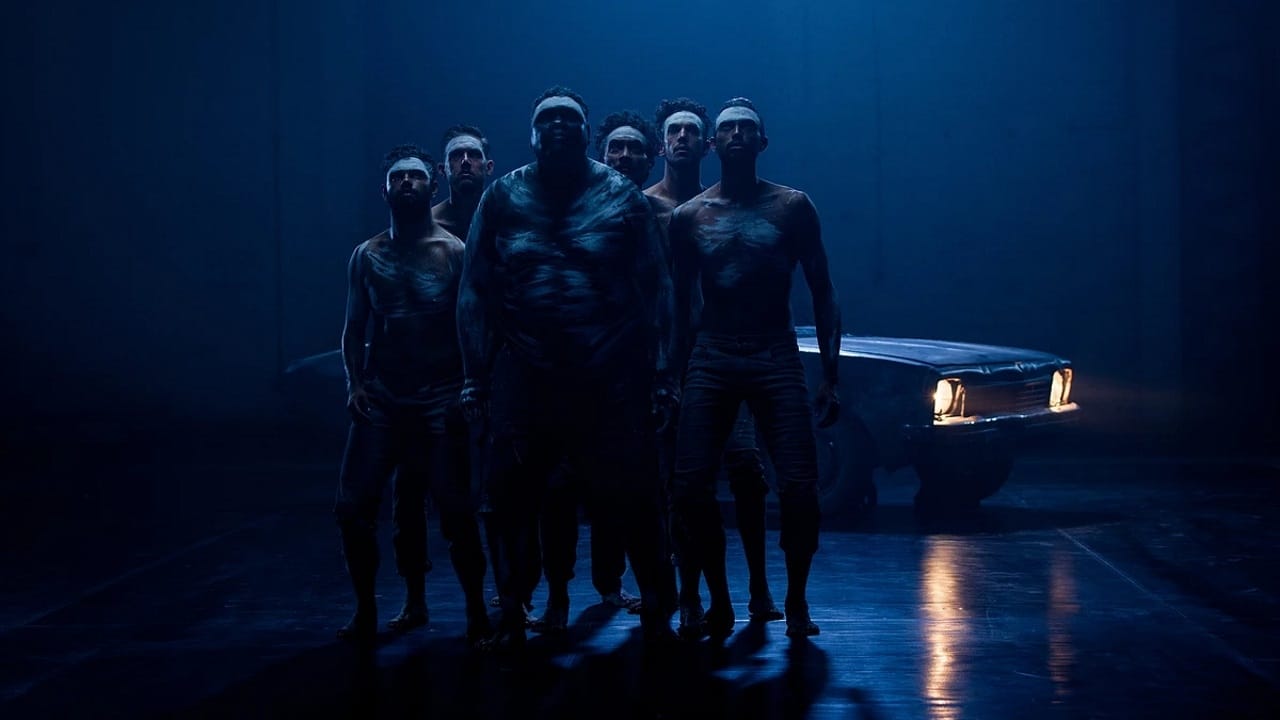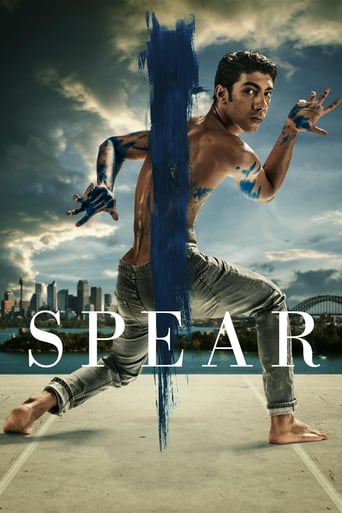

a film so unique, intoxicating and bizarre that it not only demands another viewing, but is also forgivable as a satirical comedy where the jokes eventually take the back seat.
... View MoreThis is a coming of age storyline that you've seen in one form or another for decades. It takes a truly unique voice to make yet another one worth watching.
... View MoreAlthough I seem to have had higher expectations than I thought, the movie is super entertaining.
... View MoreThe film's masterful storytelling did its job. The message was clear. No need to overdo.
... View MoreSPEAR is a moving film directed by Stephen Page, artistic director of Bangarra Dance Theatre. It expresses and educates on issues for Aboriginal men in contemporary Australia. The film explores initiation to manhood rituals and the themes arising are leadership, guidance, role models and identity. All the dance sequences are referenced to these themes; I was never left guessing about ambiguous abstract compositions. The film gives examples of male support outside of the usual macho paradigm. For example, the beautiful sequence shot near Dhulunbuy where dancers weave sensuously in a red desert sand circle. This is contrasted with the images of men in burnt out abandoned cars looking lost and vacant.The only scripted character in the film is Suicide Man, played with chilling naturalism by Aaron Pederson. He voices and plays out the demons threatening Aboriginal men: alcoholism, self and family disintegration and inner turmoil. The indignity of incarceration and the further violence that those institutions perpetuate is explored. It has a very strong narrative. Visually, it is a treat to behold. The combination of music, costume, lighting and the use of spatial textures creates a series of visceral atmospheres. There are many beautiful, haunting images in this film. The group dance sequences in the desert near Dhulunbuy are glorious.Midway through the film there is a satiric piece parodying the souvenir like caricatures of "Aboriginalia" using the novelty song "My Boomerang Won't Come Back" and tramped up using a vaudevillian tableau. Similarly ironic is the excerpt from the film "Jeddah" and its sugared version of Aboriginal identity, a comment on the disconnect of Aboriginal identity within mainstream Australian culture.The late David Page, the director's brother, has created an intelligent, understated soundtrack which is very dynamic and responsive. In the fight scenes he synchronizes sharp attacks with choreographed violence. At other more reflective moments he creates sheer fabric soundscapes for dancers to move within.Translating a traditional stage setting for dance to the three plus dimensions of cinema was successful. It was rewarding to be able to get detail of body shots in close ups. However the mid range shots were, for me, not as effective in composition. I wondered whether they could've been plotted better? I felt I was cut off from key parts of the body composition in the mid range shots.On one level the film is a celebration of the male physique rivaling the beauty of the male form from the Italian masters. Director Stephen Page has given us many levels of engagement in his film which is why it is so deeply satisfying. It is a multi layered poetic style of filmmaking. Ultimately, I found it both educating and moving.
... View More